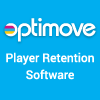
Last year, Playlab grew from 20 people to 100, and CEO Jakob Lykkegaard detailed what the company is doing to make sure success doesn’t crush out creativity in his Casual Connect Asia 2015 lecture. “One of the reasons for that [growth] is that last year, we at Casual Connect also met Niel [Dagondon] from Anino Games, and we acquired that studio in Manila a month after Casual Connect or so,” Jakob says.

Jakob Lykkegaard, co-founder and CEO of Playlab, admits that when they first created the company they could not attract investor interest; potential investors believed their projections were unrealistic. But with the launch of Juice Cubes, Playlab proved them all wrong, skyrocketing their revenues and bringing Jakob the proudest moment of his career.
Playlab: An Opportunity Too Big to Miss
Jakob and his friend, Thomas Andreasen, were offered the opportunity to take over a full game team after Jakob sold his startup Pagemodo, a company designed to improve social media presence. Andreasen and Jakob knew the team and the amazing things they could do so, as Jakob says, “I guess I ended up in gaming because this was a market and an opportunity too big to miss out on.” An entirely new market in gamers has been opened up by the high growth in smartphones, one he expects to continue growing for many years to come. He couldn’t resist pursuing it.
He admits that with his previous experience he would not have been considered for a job as CEO of a company the size of Playlab, with more than 100 employees; the only way he could be in this position was to do it himself. Now he tremendously enjoys having a job that allows him to gain knowledge and experience much faster than he could elsewhere, learning every day how to deal with people and motivate them to create better games.
Focus on Building the Business

His business background in gaming has been a great advantage to Jakob. While there are many outstanding game developers in the industry, there are very few with full business understanding. But the game is still the end product of a gaming company and without an understanding of how to sell and monetize, the company won’t be in business for long.

In the games industry building a sustainable business with the capacity for continued growth is a huge challenge because the market changes so rapidly. Game developers usually focus on making the next viral hit, just as Playlab did when they started out. Now Jakob strives to avoid this temptation; you cannot build a sustainable business based on a success you cannot replicate. They focus instead on analytics to better understand what works and how to replicate it.

Success Is in Your Team
The team is crucial to the success of game development. Jakob emphasizes, “I love people that can run with the ball. When you have people with an individual mindset, they are not afraid to make decisions and, more importantly, not afraid to be accountable for them when they are wrong.” The company has grown very quickly over the past few years and, of course, it is impossible for Jakob to know everything in every area of the business, so the people on the team must be able to get things done and ask the right questions. These are the people he trusts and promotes quickly saying, “That way we can get more things done better, faster and smarter.”
Building the right team isn’t always easy. Backend developers and data scientists are the most difficult people to add to his team. He has found few people in Southeast Asia that have the needed experience, but he has been willing to bring in foreign team members to fill the gaps.

Once he has a good team, Jakob knows how to keep it. His method of working with his team is handling everything with a smile while giving them a lot of responsibility and opportunity for decision making. In this way he empowers his team and also gets the best decisions made the quickest.
Better Revenues
The games industry has been seeing increased competition for user acquisition, enabling better revenues on video rewards and integrated ads. So Jakob expects to see more user-friendly ad integration and big games shifting their revenue models from purely IAP to ads as well.
For the next three years, Playlab will continue to focus on Southeast Asia because their revenues doubled over the last year and are expected to double again next year. Jakob is confident, claiming “We can own the market and distribution by investing now.” And he insists, “Playlab will do only freemium; that is the only way forward.”
Comments







